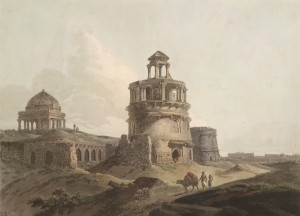Time is a rather malleable entity, unpredictable and quite unfathomable. Linear it is, say many, like a fabric all meshed up, say few, heavy like gravity, like a quasar, multi-dimensional, ephemeral, unreal, say the rest. The passage of time, quantified by the circular rotation of two sinewy arms on our clocks, is meant to signify a sort of permanence, a moment that is lost or gone, ceases to exist. There’s nothing that one can do to bring it back, lost in the ever-infinite sea of eternity. Past is past, and present is present, and never the twain shall meet, is good a testament, that could have well been etched in stone on that tablets that were forged at Mount Sinai.
And yet for all its permanence, time sometimes also seems permeable, like a sponge or something. The little circles on one side forming a connection to another side. The connections are unmistakable, inescapable. And while the recorded history of our species only stretches a couple of thousand years, even in this short period we have seen events taking shape in different time, different climate, mirroring each other in a very strange ethereal manner. Separated by a vast ocean of time, yet, these events seem like some sort of cosmic clones of each other. History (which is a product of time) indeed has a very uncanny knack of repeating itself.
To give you an idea, lets flashback to 14th century India, much long before the very idea of India even  existed. The precise time on the dial is set to sometime in the latter half of the century, somewhere say 1380s AD. The place is Firozabad, not very far from modern-day Delhi, and it’s the reign of Malik Feroze ibn Malik Rajab or more renowned as Sultan Feroze Shah Tughlaq. The Sultan is a septuagenarian man, lording over a dominion that is much weaker and lesser than what his pre-decessor had bequeathed to him. He is a sort of weakling, little in control of things around him. He had succeeded the strong-willed and maverick Sultan Muhammad bin Tughluq, who was most famous for his decree to shift the capital from Delhi to Daulatabad or his experiments with token currency that failed spectacularly. But unlike his predecessor, Feroze Shah Tughlaq was a softie, or a little more of fruitcake. When he took over in 1351, the empire was vast but in a mess. There was much confusion as Muhammad bin Tughluq had died without an heir, and in the ensuing unrest, Feroze was enthroned as the new sultan. Continue reading
existed. The precise time on the dial is set to sometime in the latter half of the century, somewhere say 1380s AD. The place is Firozabad, not very far from modern-day Delhi, and it’s the reign of Malik Feroze ibn Malik Rajab or more renowned as Sultan Feroze Shah Tughlaq. The Sultan is a septuagenarian man, lording over a dominion that is much weaker and lesser than what his pre-decessor had bequeathed to him. He is a sort of weakling, little in control of things around him. He had succeeded the strong-willed and maverick Sultan Muhammad bin Tughluq, who was most famous for his decree to shift the capital from Delhi to Daulatabad or his experiments with token currency that failed spectacularly. But unlike his predecessor, Feroze Shah Tughlaq was a softie, or a little more of fruitcake. When he took over in 1351, the empire was vast but in a mess. There was much confusion as Muhammad bin Tughluq had died without an heir, and in the ensuing unrest, Feroze was enthroned as the new sultan. Continue reading
